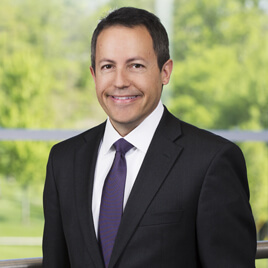Detroit Shareholders David Yates, Eric Conn and Detroit Associate Michael Wisniewski successfully briefed and argued on appeal that the open and obvious absolute defense should be extended to include contractors and subcontractors who temporarily maintain possession and control of the property of a third party landowner. So strong was their argument that the Court of Appeals issued a published opinion that formally adopted Restatement 2d Torts § 384 in Michigan for the first time. Segal McCambridge’s attorneys represented the third party subcontractor who was engaged to install a fire suppressant system within an existing commercial business property.
In Finazzo v Fire Equipment Company & Low Voltage Building Technologies, Inc., __ Mich App __, (April 17, 2018), the Plaintiff, a security guard, was hired by the premises owner to provide existing employees, contractors, and subcontractors access to the area where work was being performed, warn others of the existence of a cable on the floor, provide instructions to avoid the cable, and finally traverse the cable on numerous occasions himself. When Plaintiff tripped and fell on the cable, he brought suit against the general contractor and subcontractor. The lower court found for Defendants noting the hazard was avoidable, Plaintiff knew of its existence and only through his own fault did he step on the cable and fall to the ground.
On appeal, Plaintiff argued the open and obvious defense did not apply because Defendants did not possess and control the property and that his claim sounded in ordinary negligence rather than premises liability. Segal McCambridge’s attorneys disagreed, highlighting that the circumstances that caused Plaintiff to trip and fall were the result of a condition arising out of the land, i.e. the existence of a cable on the floor, and not as a result of active negligence of Defendants. Furthermore, Defendant was ceded possession and control of the commercial business property when they contracted with the third party owner. Although Michigan had never formally adopted Restatement 2d Torts § 384, Segal McCambridge pushed the Court to recognize that the Courts of the State had been implicitly applying its principals all along. In a well written and straightforward opinion, the Court agreed the open and obvious defense applies to non-premises owners who were ceded or "loaned" possession and control of the property at the time when an incident occurred. Importantly, the Court officially embraced Restatement 2d Torts § 384 and agreed the one in possession and control of the land is best able to prevent harm to others.
The opinion on the Court of Appeals is significant for defense counsel in Michigan. In the future, Defendants will be able to more easily articulate the applicability of the open and obvious defense to non-land owners. Ultimately, the decision definitively closes off one of the last remaining routes around the open and obvious defense and affords contractors and subcontractors the same freedom from liability as a landowner while their work is being performed.


